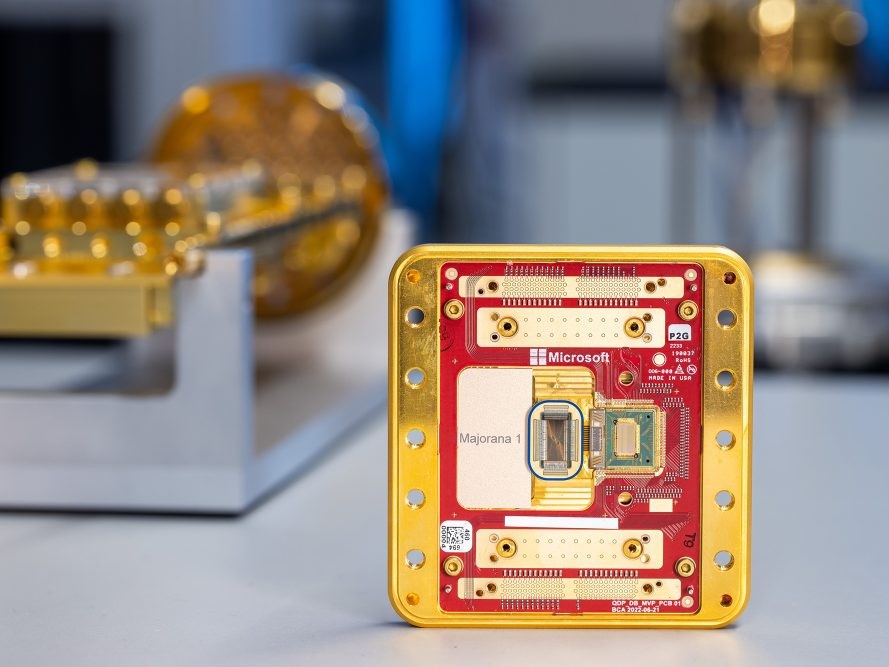

BY: We the Italians Editorial Staff
Microsoft has unveiled its new quantum chip, Majorana 1, a groundbreaking processor that leverages topological superconductors and qubits to push quantum computing toward practical, real-world applications. Named in honor of the Italian theoretical physicist Ettore Majorana, who first proposed the existence of these exotic particles in 1937, the chip represents a major milestone in quantum research and technology.
Ettore Majorana, born in Catania (Sicily) in 1906, was an Italian physicist. He primarily worked as a theoretical physics researcher within the group known as the "I ragazzi di Via Panisperna.". His most significant contributions were in the fields of nuclear physics and relativistic quantum mechanics, with particular applications in neutrino theory.
His fame is also due to his sudden and mysterious disappearance, which sparked numerous speculations regarding possible suicide or voluntary exile, and the true reasons behind it were never conclusively determined.
Majorana 1 is based on a new material developed specifically for creating “topological qubits.” Unlike conventional bits in classical computing or even traditional qubits in current quantum machines, topological qubits utilize the unique properties of matter’s topology to store quantum information more reliably. This approach minimizes errors by harnessing the stability of topological states, which are inherently less susceptible to the environmental “noise” that typically disrupts quantum calculations. By reducing error rates, Majorana 1 paves the way for scaling quantum computers to a level where they can eventually handle millions of qubits—dramatically surpassing today’s devices, which operate with only thousands of qubits at best.
The innovation stems from nearly two decades of research at Microsoft. According to company representatives, this new chip is the culmination of a 17-year effort to reimagine the building blocks of quantum processors. Engineers designed a custom material mix, combining indium arsenide and aluminum, fabricated with atomic-level precision to minimize defects. Early tests have demonstrated that Majorana 1 is sensitive enough to distinguish minute differences in electron count, a promising sign for its future application in complex computations.
Both sources note that while the technological promise is immense, some skepticism remains within the scientific community. Critics caution that claims of topological qubit stability must be rigorously validated as researchers scale up the number of qubits. Past announcements regarding similar phenomena were retracted after further scrutiny, prompting experts to urge caution until extensive testing confirms the chip’s performance under more demanding conditions.
If proven successful, Majorana 1 could unlock significant advancements across multiple fields. Potential applications include designing self-healing materials for infrastructure, optimizing sustainable agricultural practices, and discovering new chemical compounds with improved safety profiles. Ultimately, Microsoft’s innovation could herald a new era in quantum computing, where fault-tolerant systems solve previously intractable industrial and scientific challenges.
You may be interested
-
'Phantom Limb': A Conversation With Dennis...
Dennis Palumbo is a thriller writer and psychotherapist in private practice. He's the auth...
-
Arnaldo Trabucco, celebrated medical practit...
Arnaldo Trabucco, MD, FACS is a leading urologist who received his medical training at ins...
-
Exciting Palatine. Interview with Clementina...
You can tell she fills with excitement when she has the chance to show an important archae...
-
ISSNAF medical imaging science chapter meeti...
AGENDA 12.00 – 12.15 Light lunch12.15 – 12.30Welcome addresses Lorenzo Mannelli, MD, PhD...
-
Italy, the importance of innovation for agri...
by Claudia Astarita The food farming sector is still one of the engines of Italia...
-
'Extinct' volcano near Rome is waking up and...
A volcano near Rome thought to be extinct appears to be waking up and entering a new erupt...
-
'Lovers of Modena' skeletons holding hands we...
The “Lovers of Modena”, a pair of skeletons so called because they were buried hand-in-han...
-
'The Precise Image of What Jesus Looked Like'...
One of the most-well known relics in archeological history is leading researchers to belie...










